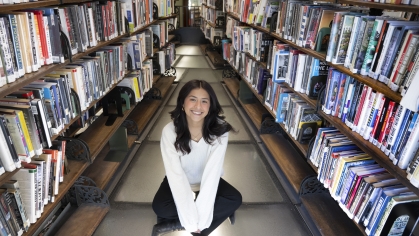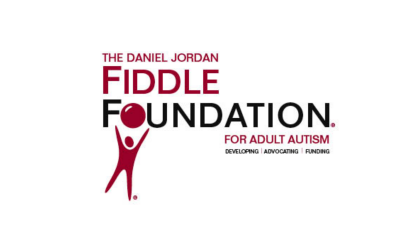The Daniel Jordan Fiddle Foundation Creator Seeks to Strengthen Community Ties through Collaboration
The Daniel Jordan Fiddle Foundation (DJFF), the first nonprofit and only all-volunteer-run organization in the U.S. focusing on adult autism, has been blazing trails since 2002. The DJFF’s model programs, resources, public policy and awareness initiatives are person-centered and derive from the needs and hopes of the diverse population of adults diagnosed with Autism Spectrum Disorder (ASD) and their families. As the foundation marks its 20th anniversary, founder and president Linda J. Walder, Esq. shares how The DJFF engages with communities to create paths leading to fulfilling and potential-driven lives.
How did The DJFF get started?
The DJFF was established in honor and memory of my son, Danny Fiddle, who was diagnosed with autism when he was about two and a half years old. During Danny’s lifetime I realized he was going to have good schooling, and there would be many opportunities for him, especially in New Jersey and New York. But I wondered what was going to happen to him as an adult. Many children who have autism also have several comorbidities, and Danny’s resulted in a seizure. He passed to heaven when he was nine years old. People said I was such an active parent and urged me to continue my efforts. I was still in a daze, but I realized that it would be worthwhile to continue on, especially because I was a person with a deep perspective on autism and the challenges that families and individuals face. I was also in a position where I no longer had the day-to-day rigor of finding the right paths that would help my child. So, I had a unique opportunity, and I decided to take it. When our board was established 20 years ago, I suggested we focus on adults because nobody else was. It became the focal point of our trailblazing mission.
Tell us about your background and how it helped you create the foundation.
I really started from the ground up. In retrospect, my background as an attorney and prior work in public relations helped. It actually was the perfect storm, because I had the understanding of how to formulate partnerships and agreements, and I also knew how to move our mission forward, spreading awareness that autism is a lifelong journey, not just a childhood situation.
What are some of the challenges you faced when starting The DJFF?
One of the challenges was my naivete in the sense that I didn’t have a nonprofit background. However, my enthusiasm really led me to reach out to others. I think when you work with likeminded organizations you are not faced with as many challenges because working together often helps create solutions. I actually started the foundation mission and brought it forward because of an article I read in The New York Times about a place called High Point Farm that is owned by an entity in New York City that focuses on supporting people with bipolar disorder and schizophrenia. I thought the farm would be a great place for young adults who have been diagnosed with autism who are seeking to be outdoors to get their Eagle Scout badges. So we partnered with Fountain House, which runs High Point Farm. One may say it was an obstacle to reach out to an organization that doesn’t even focus on autism, but after talking about it, we figured out that we could make it work. With collaborative thinking, positivity, and the goal of helping people, we can pretty much make anything happen.
What are The DJFF’s goals and values?
We always centered our mission on adults, and our core value has always been to aspire to create the most fulfilling lives possible as I had wished for my own son. Another core value in our mission is to meet people where they are, a tenet of social work. It was imperative that we listen to people, watch what they gravitate towards, and then help open the doors where they’re going. Another key component of our mission is enthusiasm. We cannot underestimate passion and enthusiasm, which generate collaboration.
How does The DJFF engage with communities?
One of the strongest aspects of The DJFF is that it’s known for being a highly collaborative organization. I think in our society we are very competitive by training from childhood onward, but for some reason, I’m not built that way. I feel that collaboration is much stronger than competition. I would rather listen to a variety of people and organizations to figure out a way we can take our strengths and talents and put them together to create something wonderful.
What advice would you give to someone who wants to engage with their community but might not know where to start?
Do your homework, which means listening, determining what you want, and developing your focus. I can’t stress enough the importance of listening. When we started The DJFF, we created an advisory board comprised of an array of people, and the most important people we listen to have been those who have autism and their family members. It’s critical to observe and listen, not dictate to people what you think they want. I think that’s been a big mistake a lot of organizations make, especially in the world of autism. A lot of advocates feel that organizations design missions based upon their own vision, but not about the people themselves who are affected by the challenges of autism.
Tell us about The DJFF’s relationship with Rutgers School of Social Work.
It began when I reached out to Dean Cathryn Potter. I didn’t know her, but I knew Rutgers School of Social Work had a lauded and well-respected program, so it seemed like there would be no better place to start an endowment fund. I explained to Dean Potter that we wanted to make sure adult autism would be a focus in perpetuity at great universities that had exceptional programs in the specific areas that we were interested in pursuing. We decided to focus on providing support and resources for the family members of adults with autism, an underserved community of people who are also on the lifelong journey of autism. We thought the best way to facilitate this would be to support graduate fellows working as direct care clinicians with family members of adults with autism. Obviously, you can only help a handful of people in that manner, so to throw the net out further, we tasked the fellows with creating and maintaining a resource guide to help individuals obtain information that could help their family member or just themselves. We’ve had an exceptional group of fellows over the years. There has been a common denominator of enthusiasm and passion amongst the fellows, and many of them have had a personal connection to autism.
As The DJFF marks its 20th anniversary, what are your hopes for the future of the foundation?
As I look back, I get emotional because I didn't have great aspirations when we started. I wanted to help one person or one family, so we will continue helping one individual and one family at a time. If we do that then we have done something really important. I hope that through our efforts we can inspire others to see that you don’t have to be competitive, you can be collaborative, and your goal should be to help those you serve, not to enhance your position. Collaboration can propel us forward to do good things for people and help us realize that we all have a right to achieve our best life possible.
To learn more about The Daniel Jordan Fiddle Foundation, visit djfiddlefoundation.org.



